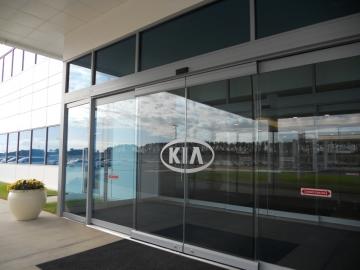
Section Branding
Header Content
High Court Hears Kia Lawsuit
Primary Content

The Georgia Supreme Court hears arguments Monday from former auto workers who say Kia didn’t hire them to work at its West Point plant because the workers are union members.
They spent years working for Ford at its Hapeville plant and say that is the only common factor among them.
“It couldn’t have been a black thing, it couldn’t have been a white thing, it couldn’t have been a female thing, it couldn’t have been an older or younger thing,” said Sabrina Bolston of Union City, one of the workers in the suit. “All of us applied and none of us got called. So that appears to be the only common thread.”
The workers are suing Kia and the state for access to records from the state’s QuickStart program, which screened and hired workers for the plant. They argue state lawmakers illegally changed Georgia law to block access to the records after the workers initially filed suit.
State Attorney General Sam Olens spearheaded a 2012 rewrite of the state’s open records law with the backing of news organizations and First Amendment groups. But the origin is unclear of the provision retroactively blocking the release of records about state training programs.
State officials say the whole process of writing the bill was transparent and normal.
“This provision, like all the other provisions, was discussed with the stakeholders including the press in great detail,” said Olen’s spokeswoman Lauren Kane in an interview last year. “It was publicly presented at a Senate hearing and the entire bill was available in its final form for well over a week before the final vote.”
The Supreme Court won’t actually decide the case. But justices will determine if the case can move forward in a lower court.
Tags: Georgia Supreme Court, KIA, labor unions, unions, Sam Olens, Kia plant, Kia Motors West Point, open records, open records law, Kia Motors Manufacturing Georgia, Kia lawsuit
Bottom Content

